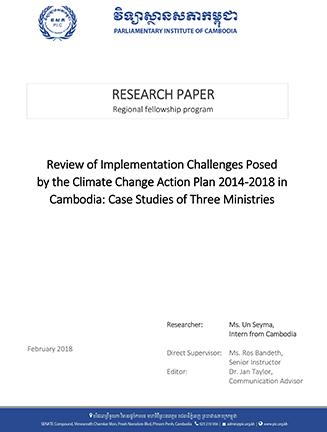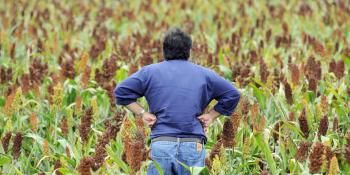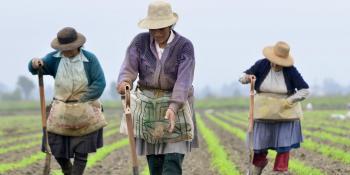Southeast Asian Parliamentary staff conducts climate change-related studies

To achieve a stronger climate diplomacy in Southeast Asia, improving the capacity of parliamentarians in conducting effective research is a must.
As part of the Regional Fellowship Program on Parliamentary Research, being implemented by the Parliamentary Institute of Cambodia (PIC), 14 fellows from Cambodia, Laos, Myanmar, and Thailand finished a six-month training on parliamentary research methods and skills and published climate change-related research papers.
The CGIAR Research Program on Climate Change, Agriculture and Food Security (CCAFS) and the University of Utrecht, through the Scenarios project, supported the training program by integrating the knowledge and skills on climate change, climate diplomacy and foresight governance in conducting parliamentary research. With the assistance of Dr. Rathana Peou, CCAFS Southeast Asia Regional Scenarios Coordinator and Policy Researcher, the participants were able to produce a fact-based, well-written and balanced research paper.
According to Dr. So Sovannarith, the Parliamentary Research Capacity Development Manager of PIC, the Scenarios team provided training support in making sure that the research papers are of high quality and will be useful for the parliamentarians. He also shared that Dr. Peou and her team reoriented the participants to have a “research to policy” perspective, especially in mainstreaming climate change adaptation and mitigation in the research papers.
To put into practice the “research to policy” orientation, the participants conducted several studies, including policy reviews and case studies on different climate change-related concerns.
 Read the publication here |
Several participants focused on analysing various climate change policies in their countries. They reviewed various government plans and strategies, such as the: Cambodia’s Climate Change Action Plan 2014-2018 of Cambodia; Lao PDR’s Implementation of Forest Cover Policy to the Year 2020 Regarding Forest Carbon Stocks; and Myanmar’s Climate Change Adaptation and Mitigation Strategy in Agriculture. The studies provided policy recommendations concerning the implementation of the policies reviewed. Specific topics included were infrastructure, financing, capacity development and public engagement.
It is also notable that a number of research papers produced by the participants tackled problems related to water resources in the context of climate change. Several studies focused on Myanmar to look into the future challenges on water utilization and management of water resources for agriculture in the dry zone. Studies were also done to analyze the impacts of flooding on infrastructure and on food security in the country.
Another study, conducted by a Thai participant, focused on the flooding of rice farming in Chao Phraya Basin. The participants from Cambodia, on the other hand, conducted studies on the water resources and the current flood risk management system in their country.
The impacts of climate change to health and nutrition was also given attention by the participants. There were research papers done to address climate-induced child malnutrition in Lao PDR and the challenges brought by climate-induced natural disasters to the health sector in Myanmar.
The studies provided recommendations by presenting best practices from other countries, prescribing specific policy actions and analysing various adaptation and mitigation strategies.
The training program also served as a platform for knowledge sharing among Parliaments of Association of Southeast Asian Nations (ASEAN) countries. With more than thousands of downloads as of today, the research papers are uploaded and easily accessible at the PIC website.
Read more:
- News update: CCAFS scenarios process informs Cambodia's climate action plans
- Blog: Future Scenarios work informs climate and agriculture policies in seven countries
- Research highlight: CCAFS Scenarios Guide the Cambodian Climate Change Priorities Action Plan for Agriculture
Eisen Bernardo is the Senior Communication Specialist of CCAFS Southeast Asia.



